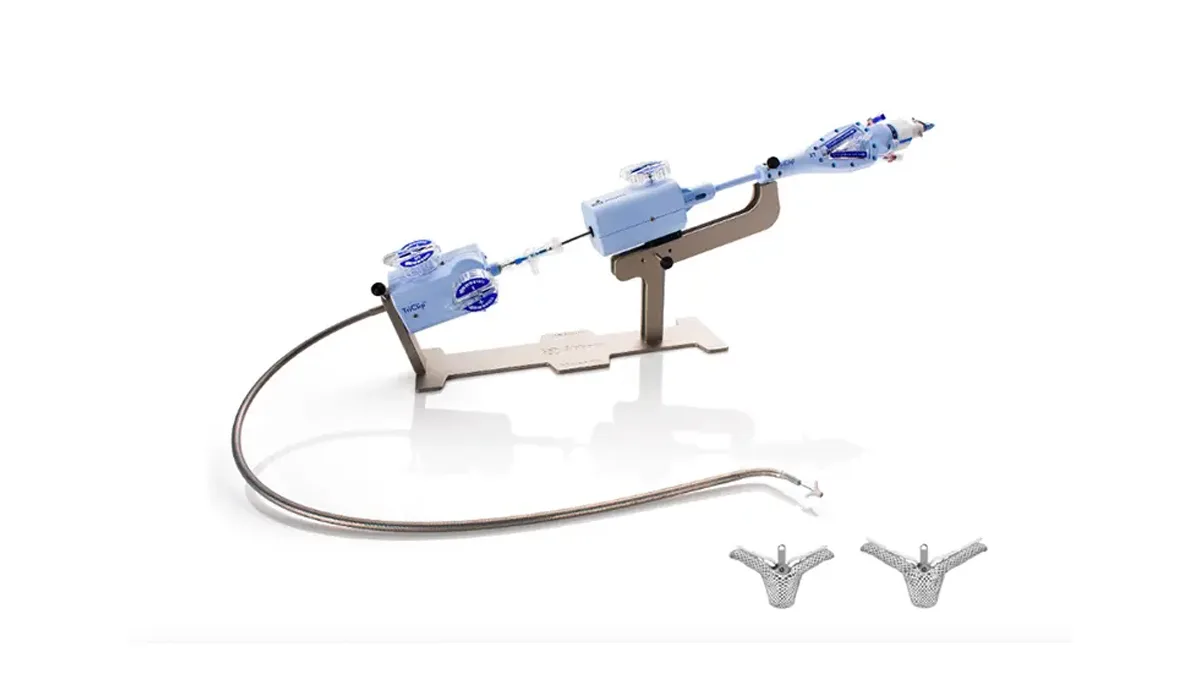ABBOTT PARK, February 2024 – Abbott announced that the Circulatory System Devices Panel of the Medical Devices Advisory Committee for the U.S. Food and Drug Administration (FDA) confirmed 13 to 1, with 0 abstention that the benefits of Abbott’s TriClip™ transcatheter edge-to-edge repair (TEER) system outweighed the risks for the treatment of people with tricuspid regurgitation (TR). The panel’s decision was based on clinical data from the TRILUMINATE™ pivotal trial, as well as expert testimony. The panel’s vote will be considered by the FDA when deciding on the approval of TriClip, a first-of-its-kind minimally invasive device specifically designed to treat the difficult-to-access tricuspid valve.
“Tricuspid regurgitation can put added strain on the heart and lead to other cardiovascular issues, which can significantly worsen a person’s quality of life, but historically there have been few treatment options,” said Lars Søndergaard, M.D., chief medical officer and divisional vice president of medical affairs of Abbott’s structural heart business. “Abbott recognized the unmet need for people with this condition and explored the use of our proven clip-based technology to find a truly life-changing intervention. TriClip offers an urgently needed alternative that is safe and effective for people who require tricuspid valve repair but are not able to withstand surgery.”
The tricuspid valve controls blood as it flows from the heart’s right atrium to the right ventricle. TR occurs when the valve doesn’t close properly, causing a leak and allowing blood to flow backward in the heart. For those who continue to have symptoms or persistent TR despite treatment with medical therapy and are not considered good candidates for surgery, TriClip represents a potentially new option that can improve a person’s quality of life. Delivered through a vein in the leg, TriClip’s TEER technology works by clipping together a portion of the leaflets – or flaps of tissue – to repair the tricuspid valve and help blood flow in the right direction without the need for open-heart surgery.
After reviewing data from Abbott’s TRILUMINATE pivotal trial and listening to testimony, the panel voted on the device’s safety, effectiveness and risk/benefit profile as a treatment for TR. On the question of whether there is enough data to support the safety of the device, the vote was 14 to 0 in favor. On the separate question of whether there is reasonable assurance that the device is effective, the vote was 12 to 2 in favor. And, On the final question of the benefit of TriClip versus the risk, the vote was 13 to 1 in favor.
Also Read: Did Masimo Receive FDA Clearance for the Stork Baby Monitoring System?
“Tricuspid regurgitation can cause fatigue, shortness of breath, irregular heart rhythms, swelling and organ dysfunction. As the disease progresses, it is often debilitating and impacts a person’s ability to live the life they want,” said David Adams, M.D., chairman of the department of cardiovascular surgery at the Icahn School of Medicine at Mount Sinai and cardiac surgeon-in-chief of the Mount Sinai Health System, who served as co-principal investigator of the TRILUMINATE pivotal trial. “In the TRILUMINATE pivotal trial, we found that 90% of people who received tricuspid valve repair with the TriClip implant experienced a marked improvement in the severity of their TR with unprecedented procedural safety, and their improvement in quality of life was sustained at one year. The TriClip system ushers in a new era of structural therapy for patients suffering from severe tricuspid valve disease.”
Abbott submitted its pre-market approval (PMA) application for the TriClip device in March 2023 to the FDA, which lead to advisory committee panel for expert advice on the device’s clinical safety, effectiveness, risk and benefit. The FDA routinely seeks input from advisory committees, especially for first-of-a-kind medical devices. The FDA’s decision on Abbott’s TriClip is expected in 2024.
TriClip is approved for use in more than 50 countries, including in Europe and Canada, and has already been used to treat more than 10,000 people with TR. It is an investigational device in the United States.
Abbott offers the industry’s most comprehensive portfolio of structural heart solutions. In addition to TriClip, the company’s innovative, minimally invasive therapies include first-of-its-kind technologies MitraClip™ (to treat leaky valves in people with mitral regurgitation) and Amplatzer Piccolo™ Occluder (to close a hole in the heart of babies), as well as the Navitor™ transcatheter aortic valve implantation system (to treat aortic stenosis). Abbott continues to focus on addressing the unmet needs of patients with structural heart disease and advancing standards of care so people can live their fullest possible lives.



















